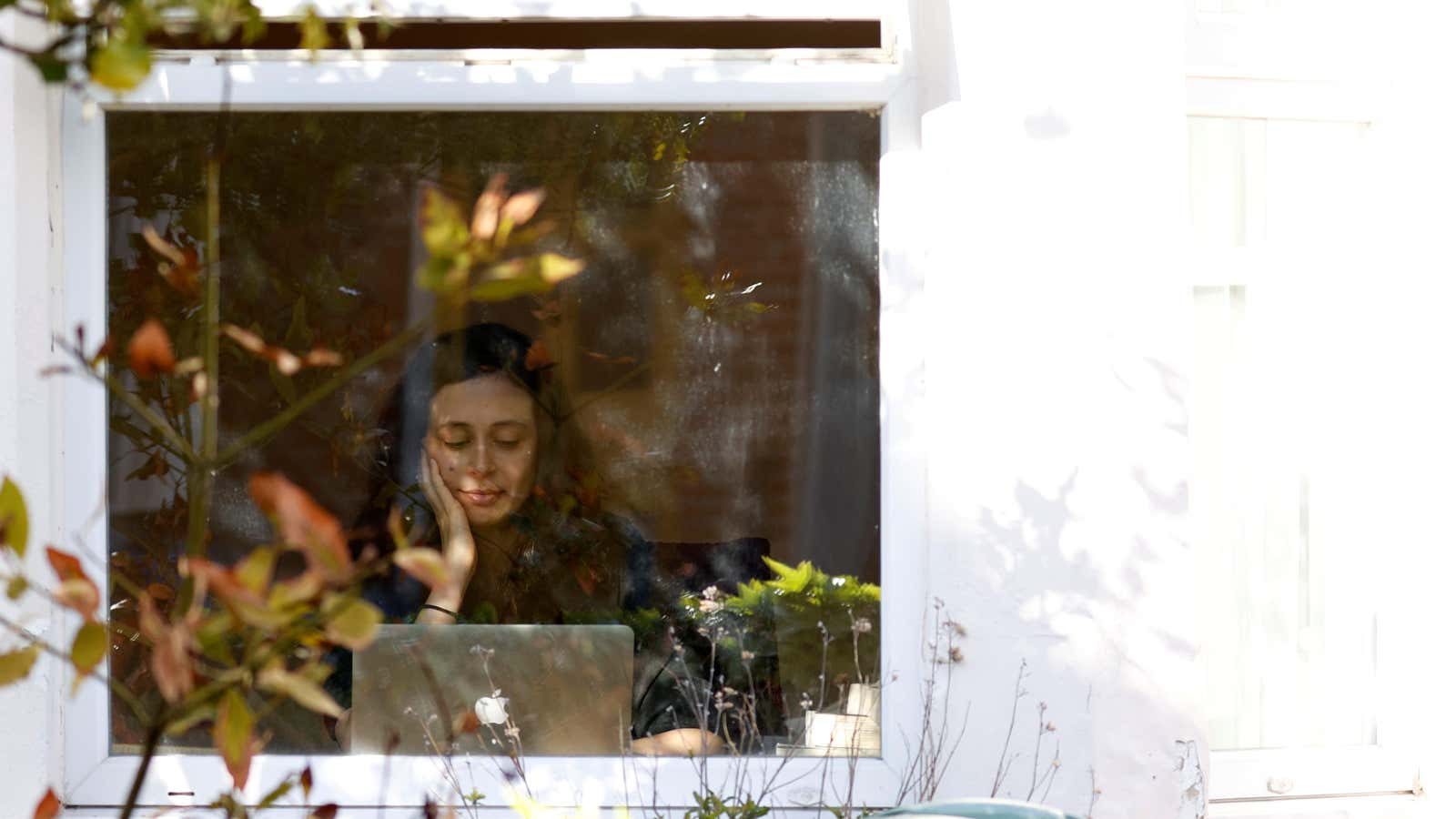Shubham Chabra, a Delhi-based IT professional, doesn’t want the remote work phenomenon to end. What the 29-year-old enjoys most about it is the time he now gets to focus on photography, his passion.
Branching off as a pre-wedding photographer recently, Chabra loves capturing couples in love. Earning approximately 50,000 rupees ($652) for a shoot nowadays, he wants to expand his profile eventually.
“I have been getting gigs through friends and social media and have been dividing my time between my day job and going out to earn some extra money doing what I actually love,” he told Quartz.
Mumbai-based Stuti Arora, too, has been devoting more time than ever to paintings, a long-time hobby that’s now earning the ad executive money, too. She charges somewhere between Rs15,000 and Rs20,000—sometimes even up to Rs40,000—for each piece of her artwork.
For many like Chabra and Arora, such side hustling, a trend accelerated by the covid lockdown in India in 2021, is serious business increasingly. Besides, they are transparent and matter-of-fact about being able to earn a few bucks more from their private passions.
Not everyone may be that lucky, though.
“If money wasn’t a problem, I’d rather be a full-time baker but it is and I am not,” said Madhav Sinha of Delhi. The sales professional kickstarted his venture during the covid lockdown in 2020 and even began taking orders for his bakery products over WhatsApp.
Sinha is now struggling to keep things discrete. “I don’t know for how long I’d be able to do both but as long as it isn’t an issue, I’ll continue,” he said.
Others, too, find themselves in Sinha’s position, avoiding “complicating things at their workplace.”
Why do companies resist side hustles?
“Some Indian companies may allow employees to do the side work until and unless they achieve their day’s target. While others may not do that simply because of the policies,” said Murali Menon, head of the human resource at online furniture firm WoodenStreet, which has over 500 employees.
The resistance to side-hustling, according to Menon, is the perceived long-term unfeasibility of juggling multiple jobs.
“Organisations are not yet ready (to allow side hustles or moonlighting)…as its a potential productivity loss due to divided attention, the possible threat of passing confidential information, and leading to complicated workplace relationships,” said Sumit Kumar, business head of the National Employability Through Apprenticeship Programme at TeamLease Services.
Companies’ wariness notwithstanding, the idea of a side hustle is here to stay.
Arora, the Mumbai digital media expert, even believes that if companies remain rigid about it, they will witness a resignation spree at some point of time in future.
“So many of us at work realised that we are more than our day jobs. And if given a choice between dragging through nine hours at a desk or the freedom to be productive and work from any part of the world while keeping up with our true passions, I think, many will choose the latter,” she said.
To ensure that the phenomenon is a win-win for both employees and employers, employers must tweak and strengthen their work policies.
“The lack of proper guidelines for the same has undoubtedly made many Indian companies apprehensive of letting their employees pursue anything other than their primary job,” said Chandan Garg, chairman and managing director at Jaipur-based software firm Innovana ThinkLabs.
Why side hustles are here to stay
“Covid has taught us that nothing is enough. No amount of time and money is enough. With the country shut due to lockdown, several of us switched to surviving on our savings,” said Raghunandan Saraf, founder and CEO of an online marketplace Saraf Furniture.
Even the cost of “general survival” has increased, transforming side hustles themselves into a necessity, he said.
Delhi’s Chabra agrees. “I do it because I love it but I know many at my workplace who are also freelancing within the IT sector to get some extra financial support.”
